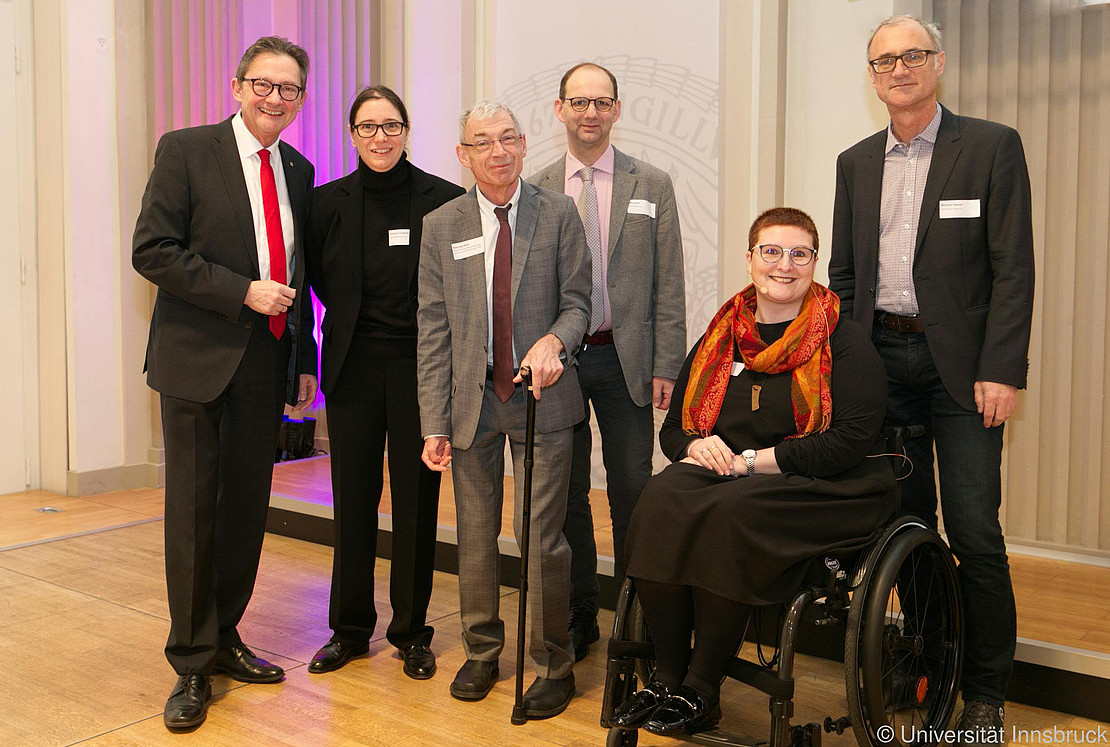This page contains automatically translated content.
Conference on the implementation of the UN Convention on the Rights of Persons with Disabilities
 Image: Uni Innsbruck.
Image: Uni Innsbruck.The first part of the event on the implementation of the UN Convention on the Rights of Persons with Disabilities (CRPD) in Austria and Germany focused on the second State Reports of Austria and Germany, which still have to be submitted to the UN Committee this year. Accordingly, the concrete contents were still open until the submission of the State Reports. The opening lectures with an overview of the obligations arising from the Convention for Austria and Germany were held by the organizers Felix Welti (University of Kassel) and Michael Ganner (University of Innsbruck). In the course of the morning, Valentin Aichele (Head of the Monitoring Body for the UN Convention on the Rights of Persons with Disabilities in Germany) gave a presentation on the mechanism of the state review and on the state reports for Austria and Germany. In each case a responsible person could be won for the reporting: Max Rubisch from the Austrian Federal Ministry of Labor, Social Affairs, Health and Consumer Protection and Vanessa Ahuja as Head of the Department of Participation, Concerns of Persons with Disabilities, Social Compensation, Social Assistance at the Federal Ministry of Labor and Social Affairs in Germany. These presentations were followed by comments from self-advocacy organizations - for Austria by Christine Steger, Chair of the Monitoring Committee and for Germany by Verena Bentele, President of the Social Association VdK.
The second part of the event was dedicated to three core topics of the UN CRPD: legal subjectivity with a focus on questions of access to justice; education; and the right to work. These topics were dealt with in the form of parallel working groups, so that not only the legal implications of the UNCRPD and its national implementation in Austria and Germany, but above all the practical experiences of self-advocates could be addressed as intensively as possible. Each working group elaborated open implementation needs, both factual and legal, which were presented afterwards. The event was concluded by an expert academic presentation by Deilia Ferri (University of Maynooth, Ireland) on the Union law implications of the UN CRPD.
Overall, the event was intended to contribute to a better understanding of factual and legal problems in the enforcement of the rights arising from the UN CRPD by involving representatives of states as well as self-advocates, and at the same time also to clarify limits of (international) law as an emancipatory tool. Overall, the conference was intended to contribute to raising awareness as called for in the Convention. Therefore, it was a concern of those responsible to ensure that the event was as barrier-free as possible, and therefore also economically accessible. The developed core theses will be made available on the homepage of the University of Innsbruck after the conference.
Report of the University of Innsbruck from February 14, 2020